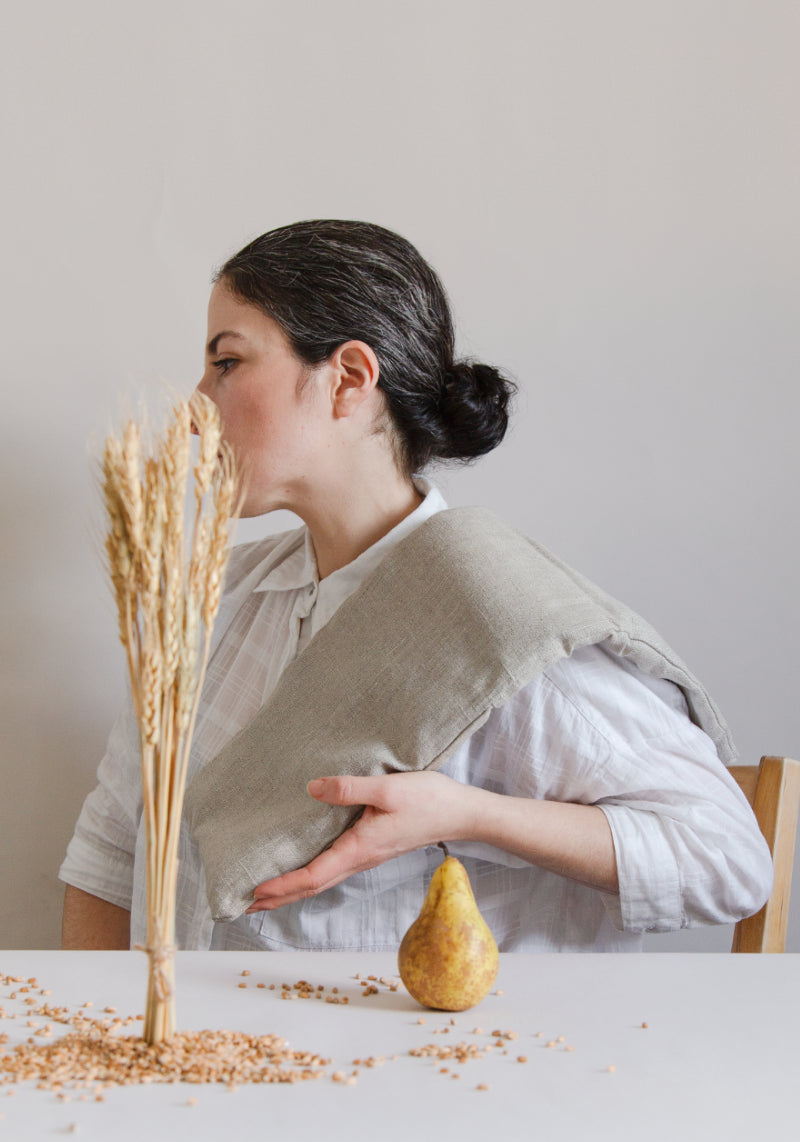Chronic Pain: What is it and why does it matter?

Chronic pain - defined as pain that lasts longer than three months - can drastically change people's lives. It can be caused by a physical problem - such as a slipped disc, but can also occur with no clear cause - known as primary pain.
It is thought that thousands of people in the UK alone suffer with long-term persistent pain. It has been described as relentless, unbearable and overwhelming. If you have ever experienced chronic pain or primary pain in your own life; you will understand just how debilitating it can be.

So what is chronic pain?
- Primary chronic pain is a condition in its own right - there is no known condition other than the pain itself. This alone can be terrifying and isolating for the person experiencing the pain as they may repeatedly go back to their GP who may not be able to give them an explanation.
- Secondary chronic pain is a pain which tends to be caused by another condition, for example, arthritis, endometriosis or cancer pain.
Chronic pain can often be confused with acute pain - a short-term pain such as a broken bone or a torn muscle.

Common types of chronic pain include:
- Arthritis, or joint pain
- Back pain
- Neck pain
- Cancer pain near a tumor
- Headaches, including migraines
- Testicular pain
- Lasting pain in scar tissue
- Muscle pain all over the body
Chronic pain can interfere with your daily activities, such as working, having a social life and taking care of yourself or others. It can lead to depression, anxiety and trouble sleeping, which can make your pain worse. This response creates a cycle that’s difficult to break.
People with chronic pain describe their pain in many different ways, such as:
- Aching
- Burning
- Shooting
- Squeezing
- Stiffness
- Stinging
- Throbbing
Pain is subjective — only the person experiencing it can identify and describe it — so it can be tricky for doctors and other healthcare providers to determine the cause. This doesn't make your pain any less valid and pain is affecting your life; you have every right to voice it and for healthcare providers to take steps to determine the right path for you.

Which tests are used to diagnose chronic pain?
- Blood tests
- Electromyography to test muscle activity
- Imaging tests such as X-Rays and MRI scans
- Nerve conduction studies to see if your nerves are reacting properly
- Reflex and balance tests
- Spinal fluid tests
- Urine tests
Because the process of finding a cause for your pain can be daunting, you may be tempted to stop looking altogether. Try, however, to stick with it for as long as you can. Simply eliminating potential diseases and disorders can help you understand where your pain is not coming from, even if the true source is never actually discovered. This can make treating your pain more effective.

So, why does chronic pain matter?
Aside from the obvious symptoms of chronic pain and the affect it has on people's lives, this disability can cause a huge range of problems such as anxiety, depression, poor sleep, feeling exhausted or wiped out, irritability, guilt, loss of interest in intimacy or sex, drug or alcohol abuse, marriage or family problems, job loss or even suicidal thoughts.
Of course, this matters very much. Imagine being a single parent and developing chronic pain but still having to raise your children to society's standards. Imagine you are a young person who develops chronic pain and becomes to ill to socialise, go to school or even work on your studies at home. These situations would affect our society as a whole and it's important for us to understand that even though the individual may be feeling the pain; it can go on to affect those close to them.
Can lifestyle changes help with chronic pain?
Four major lifestyle factors can affect your chronic pain and help minimize it. Doctors and other healthcare providers sometimes call them the four pillars of chronic pain. As a wellness brand, we highly endorse lifestyle changes that simplify your life and naturally guide you towards a better way of living. The four pillars include:
- Reducing stress. Of course, everyone would like to reduce or even eliminate stress in their lives and this point is easier said than carried out. However, stress can play a major role in chronic pain, so it’s important to try to reduce your stress as much as possible. Everyone has different techniques for managing their stress, but some techniques include meditation, mindfulness and deep breathing. Try different options until you find what works best for you. You may have different triggers to those around you; try to find out what they are and avoid them or work on reducing your reaction to them.
- Exercise. Participating in low-intensity exercises, such as walking or light swimming, for 30 minutes every day may help reduce your pain. Exercise can also be a stress reliever for some people, which is important to manage when you have chronic pain.
- Diet. It’s important to eat a healthy diet to boost your overall health. Your healthcare provider may suggest trying an anti-inflammatory diet by eliminating foods that cause inflammation, such as red meat and refined carbohydrates. Avoid smoking and cut down on alcohol consumption.
- Sleep. Getting enough quality sleep is important for your overall health. A lack of sleep can cause you to gain weight, which could make your chronic pain worse. Getting quality sleep is also important for stress management.
These 'four pillars' are what we would all like to have in our lives, of course. It seems easy to roll out these suggestions and they are not always possible. Perhaps you have a newborn baby! There won't be much time for proper sleep there. Or perhaps you are currently in a workplace that causes you a lot of stress, but you can't afford to walk away. It's not always as simple as it sounds. You should always do what works best and feels right for you and the people around you.

So, what alternatives are there for dealing with chronic pain?
Alternative treatments that have been shown to relieve chronic pain over time include:
- Acupuncture, which uses small needles placed into the muscles
- Aromatherapy, which uses aromatic plants and essential oils
- Biofeedback, which teaches you how to tweak the way your body works, influencing such things as heart rate, breathing and muscle tension
- Hypnotherapy or hypnosis
- Mindfulness training, which teaches you how to calm yourself and become less attached to your own thoughts. We recommend Headspace, which helps you create life-changing habits to support your mental health and find a healthier, happier you
- Music, art or pet therapy
- Reiki or healing touch, with a therapist using touch to change energy fields in your body
- Relaxation techniques such as massage, meditation and guided imagery
So, how can Blasta Henriet products help allieviate chronic pain?

Our Wheat Bags and Eye Pillows are designed to bring natural pain relief and once heated or cooled can offer targeted pain relief to painful joints and can adapt every contour of the body.
Use the Eye Pillows as a warm compress to relieve dry eyes and apply to any part of the body - this lightweight pillow can apply delicate pressure to help elevate swelling and ease cramping and pain.
The wheat bag is a safe and natural way to decrease joint stiffness, reduce pain and inflammation, and relieve muscle cramps. Our Wheat Bags are larger in size and once heated or cooled can drape over or wrap around any part of your body that is experiencing discomfort.
Each Wheat Bag is filled with natural wheat grains, which are evenly distributed over the contours of your body. Depending on what suits your needs - Our Wheat Bags can be heated in the microwave or over - also cooled in the freezer. So whether it is warm or cool therapy, our products are versatile to offer both, all year round.
Our products are unscented to give you the choice to either stay natural or scent them with essential oils of your preference. Lavender is known to help calm the mind and help relax your body.

Chronic pain support
The chronic pain support group is for people with pain, set up and managed by those who have pain. Their main objectives are to bring people together who are suffering from this debilitating illness within a ‘safe’ environment, to be able to share concerns and ideas, build friendships and obtain up-to-date information about handling their pain.
Pain Concern work to improve the lives of people living with pain and those who care for them. They have resources to help you self-manage your pain.
The Pain Relief Foundation have a comprehensive hub for links to other more detailed sources regarding chronic pain, its causes and ways to manage pain.
The Healthline have posted this article about how to get doctors to take pain seriously. Never let anyone underestimate what you are dealing with and what you have to go through when you are experiencing chronic pain.
If you have any more questions on how to use our products or how they can help you manage pain, please contact us here. We are always more than happy to help anyone we can and we wish you the very best in managing your pain, finding solutions and making lifestyle choices that work for you.




